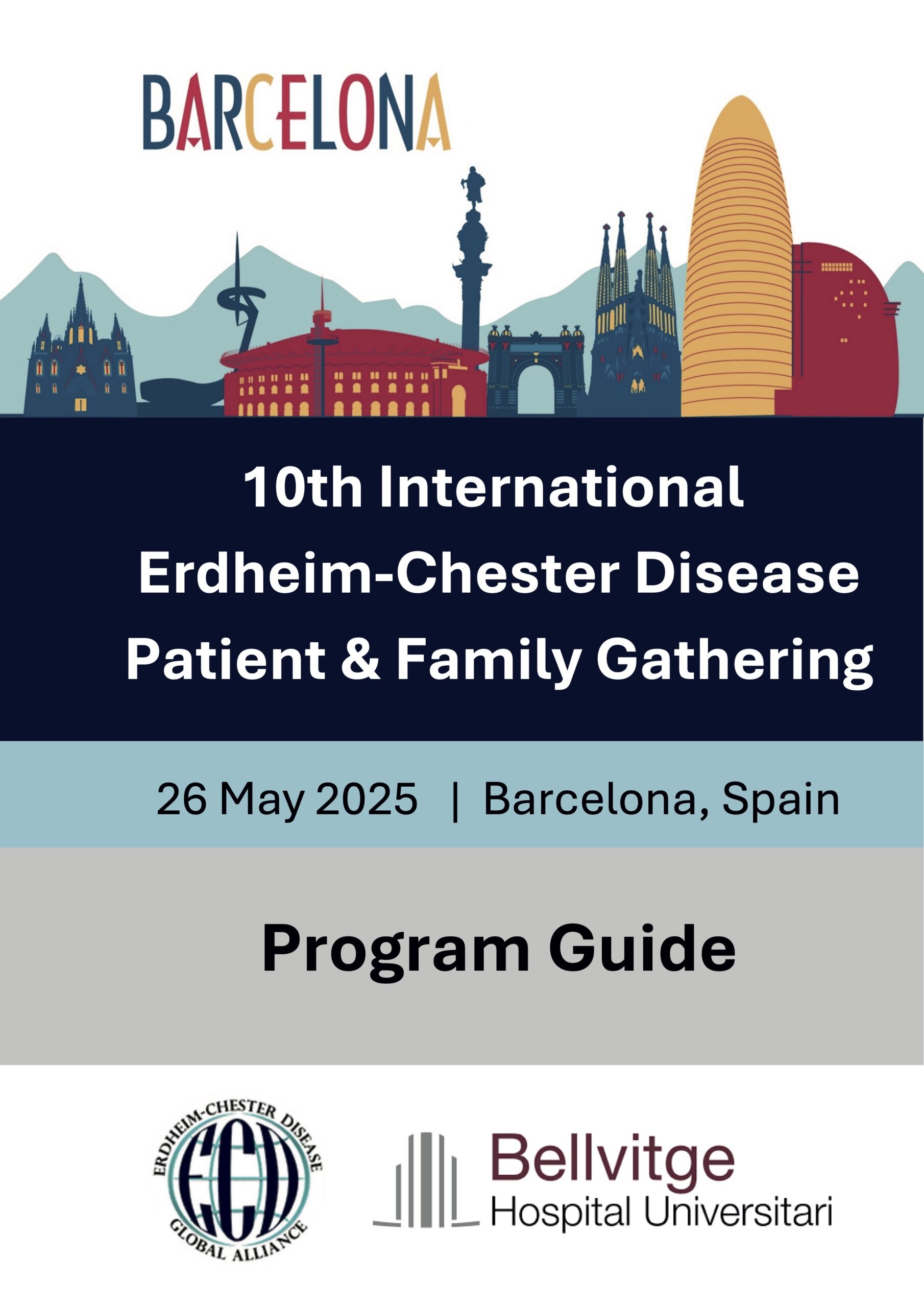Speaker: Eli Diamond, MD
Time: 10:50 AM – 11:05 AM
Date: May 26, 2025 Patient & Family Gathering
For many individuals living with Erdheim-Chester Disease (ECD), the involvement of the brain and eyes can be among the most difficult and frightening complications to face. That’s why this session, led by Dr. Eli Diamond, is an essential part of the Patient and Family Gathering. Dr. Diamond is not only a leading neuro-oncologist at Memorial Sloan Kettering Cancer Center in New York, but he is also the Chair of the ECDGA Medical Advisory Board and a pioneer in clinical research focused on ECD.
A Closer Look at Brain and Eye Involvement
ECD is known to affect multiple organs, and in up to half of all diagnosed individuals, it impacts the central nervous system. This can lead to symptoms such as difficulty with balance, vision problems, headaches, or changes in mental function. In some cases, eye involvement includes retro-orbital masses that cause pain or pressure behind the eyes. For many patients, these symptoms may appear gradually and are easily misattributed to other conditions—contributing to delays in diagnosis.
Dr. Diamond’s session will help attendees understand:
- What current science reveals about how and why the brain and eyes are affected in ECD.
- Which symptoms are most common and which should prompt timely conversations with a care provider.
- How imaging studies are used to monitor neurologic and ocular involvement.
- What is known about long-term outcomes, and how treatments may improve or stabilize symptoms.
This talk will also introduce attendees to several of the ongoing research studies Dr. Diamond is leading, including investigations into the neurologic effects of targeted therapies, and improvements in biopsy techniques that aim to make diagnosis safer and more accurate for patients with brain or orbital lesions.
Why Dr. Diamond’s Work Matters
Dr. Diamond has been at the forefront of many of the most meaningful advancements in ECD research over the past decade. He has led clinical trials for medications like vemurafenib and cobimetinib which have led to FDA approval of these treatments for ECD patients. He has published extensively on ECD-related neurologic symptoms, and co-founded the ECD Patient Registry, a tool that allows patients to contribute to global research from their own homes.
He brings a unique combination of clinical experience, research knowledge, and compassion to his work. He understands that symptoms affecting the brain and eyes are not only physically challenging but emotionally overwhelming. Through his leadership, patients are receiving earlier diagnoses, more effective care, and greater hope.
What to Expect from This Session
 This will be a focused, accessible presentation intended for patients and caregivers who may be navigating neurological symptoms, living with vision changes, or simply looking to understand more about this aspect of ECD. While no personal medical advice will be given, Dr. Diamond’s insights may help attendees ask better questions of their own physicians and feel more informed about the complexities of this disease.
This will be a focused, accessible presentation intended for patients and caregivers who may be navigating neurological symptoms, living with vision changes, or simply looking to understand more about this aspect of ECD. While no personal medical advice will be given, Dr. Diamond’s insights may help attendees ask better questions of their own physicians and feel more informed about the complexities of this disease.
Whether you’re attending as a patient, family member, or medical professional, this session is an opportunity to learn directly from one of the world’s foremost experts on neurologic involvement in Erdheim-Chester Disease.


